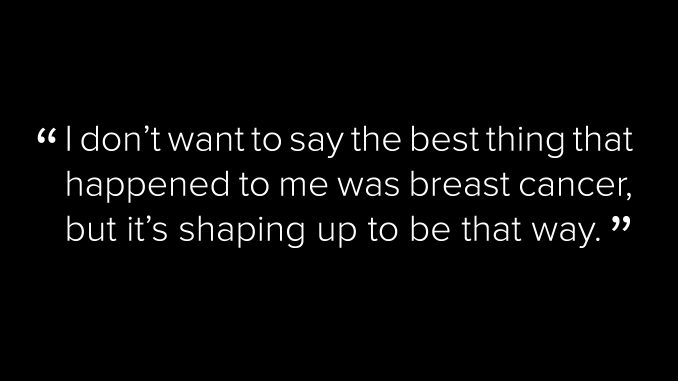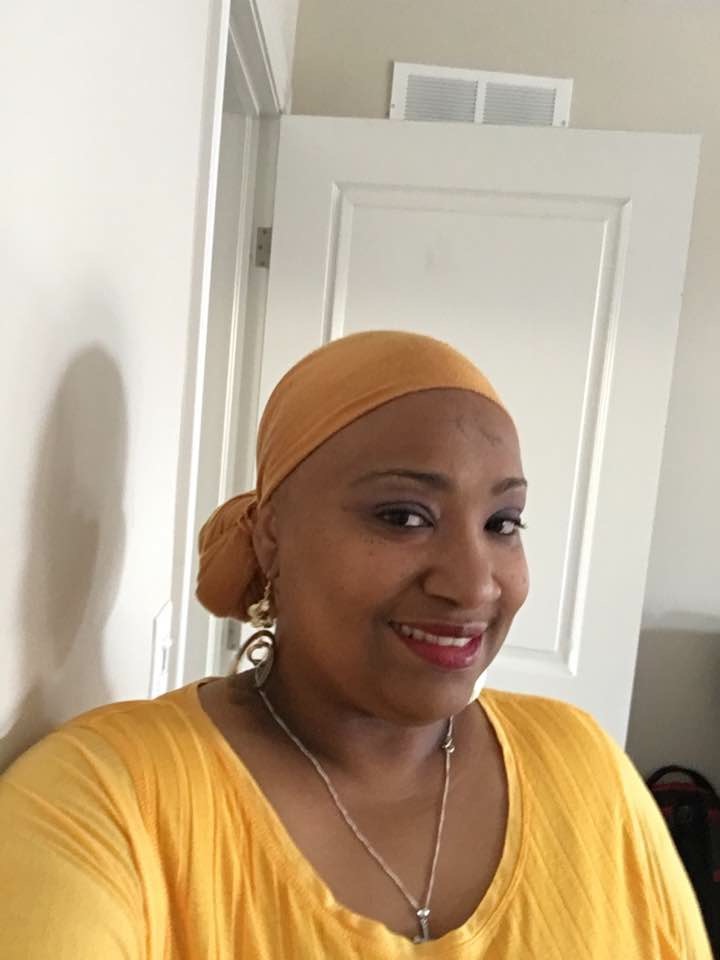
BY ALIZA LATTA
Pink ribbons are everywhere this month. The Canadian Cancer Society estimates 1 in 4 women will receive a breast cancer diagnosis in their lifetime.
It was Nov. 5, 2016 when Khalilah Elliot found the lump in her left breast. She remembers because it was the same night Donald Trump was elected President.
“I was like, ‘Something feels off,’ ” Elliot, 39, said.
The next day she had her husband check. “He was checking and said, ‘Something doesn’t feel right,’ ” Elliot said.
The following day she went to the walk-in clinic. “[The lady] checked and she was like, ‘yeah something doesn’t feel right,’ so she sent me to do the ultrasound. So when I went into the ultrasound — I did it on a Friday — and by the Monday they’re like, ‘Okay we don’t like what we see, we need you to go do a biopsy.’ ”
After the biopsy — a procedure that includes removing parts of the breast tissue for examination — the nurse called Elliot and asked her to come in for another appointment. “It would be wise for you to bring someone,” the nurse said.
“Of course once they tell you that, it’s like, okay, it’s not going to be good news,” Elliot said.
On Dec. 12, Elliot was officially diagnosed with Stage 3 breast cancer.
“I didn’t hear the stage part. My husband did. All I heard was breast cancer — and then it was just like hearing the Charlie Brown ‘wah-wah-wah’ thing after that,” Elliot said. “For like a good five minutes, I don’t know what she said.”
Elliot was diagnosed on a Monday. By the following Tuesday, she was having her first chemo treatment, with chemotherapy scheduled for every two weeks after that.

“I call them the nasty chemos. I’m still on chemo, but not the nasty ones. There’s eight that they give you that are extremely aggressive. Those are the ones that make your hair fall out and make you really sick.”
“[My doctors] knew exactly what to do,” Elliot said. “Juravinski — oh, my goodness — it’s an amazing, amazing place.”
In a moment, Elliot’s life changed forever. Whether she knew it or not, her life was never going to be the same.
“The only time I cried was in the [doctor’s] office. I left and said, ‘I’m not crying over this again. This is what it is. I can’t do anything about it. It already happened — and I know I’m in this moment for a purpose. It’s not a surprise to God, so I’m just not going to worry about it and let the doctor’s do their thing,’ ” Elliot said.
The chemo suite was a huge room, wall to wall with chairs on either side. Each time Elliot was at her chemo treatment, each of the chairs in the suite were full. People of all ages, races, and genders took up the chairs in the room, each of them hooked up to their own chemotherapy IV.
“It can get depressing,” she said. But Elliot chose not to grow dismayed or depressed.
“I found positive things to focus on,” Elliot said. “I surrounded myself with people who understood where I was coming from.”
Jackie Coffey has been close to breast cancer her whole life — her great-grandmother, great aunt, nana, and aunt were all diagnosed with breast cancer. Her aunt just finished chemotherapy treatments.
“[My aunt] is doing well,” Coffey said. “Her hair is growing back, and her energy is returning. She’s finally at the point where she can brush her hair. She’s back to herself.”
Both Coffey and Elliot are grateful that October is Breast Cancer Awareness month.
“I think October became a lot more real to me this year. Personally, I’m thankful for October,” Coffey said. “I’m very happy for the awareness of it… I think it’s very important for people to be reminded to get checked regularly.”
Elliot volunteers with Bright Run, an organization that raises money for breast cancer research at Juravinski. “It’s been a humbling experience, as well as an eye-opening experience. It’s given me a cause to care about.”
“It’s important to figure out [the cause of breast cancer]. If you know what the cause is, then you can do something about it,” Elliot said.
“If you know what the cause is, then you can do something about it.”
Since her diagnosis almost a year ago, Elliot has made some changes in her life. She is extra mindful of what she eats, is paying more attention to the people who mean most to her, and even decided to go back to school. She is learning to listen to what she needs.
“I don’t want to say the best thing that happened to me was breast cancer, but it’s shaping up to be that way,” Elliot said.
